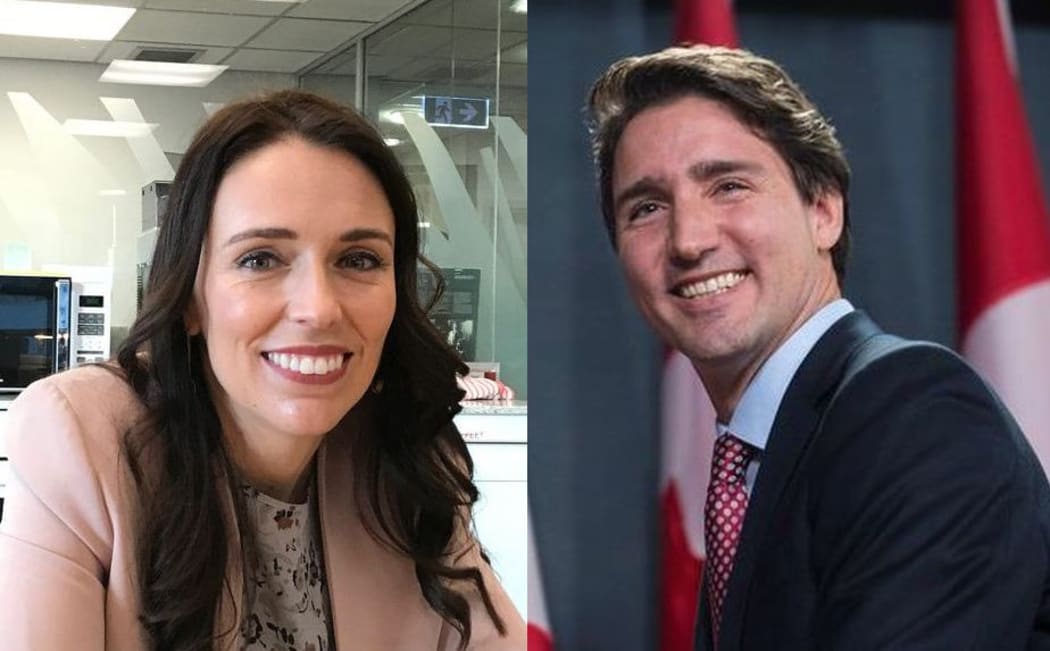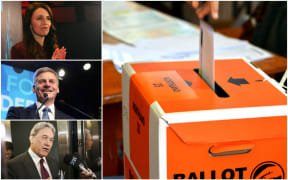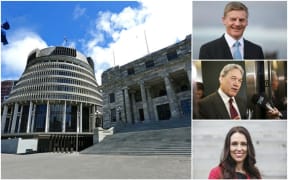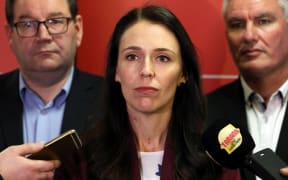Opinion - Earlier today, a Canadian journalist asked me if what he'd heard about Jacinda Ardern was true: was she really the Kiwi equivalent of Justin Trudeau?

Jacinda Ardern and Justin Trudeau. Photo: RNZ / AFP
He didn't actually name her, of course: New Zealand politics means nought to anyone who's not a Kiwi (in fact, he didn't even know Lorde was a New Zealander - can you believe it?).
While we're all getting excited about the special vote count, it's worth noting two points that stand out: as per usual, Labour and the Greens have picked up extra support and extra seats, thanks in part to overseas support. The next government now really looks to be anyone's to form.
And the other point: New Zealanders are still struggling with the strategy behind MMP voting, 21 years on from the last time Winston Peters was kingmaker. The final tally shows more than 130,000 party votes went to minor parties that failed to get anywhere near the 5 percent threshold. The wasted vote - 5.1 percent - would have won its own seat in Parliament.
Those party votes could have decided the election outcome; instead, Winston Peters will.
Here in Canada, where there are flirtations with switching from first-past-the-post to MMP, the New Zealand election outcome - or, rather, the lack thereof - might sway them to think it's not such a good idea.
However, that the Labour Party leader might be a female equivalent to Trudeau is certainly getting folks overseas - especially those on the news desks at the New York Times and the Guardian - interested.
Being likened to the celebrity prince of Canadian politics isn't necessarily a compliment for Ardern: at home, he's often regarded as more smile than substance; who, in cringeworthy style, stages his photobombs and whose rise to power was helped greatly by his dad having held the top office in the 1980s.
That said, his election win and her successful revival of the Labour Party are emblematic of a jump to the left in both after nine years of right-wing leadership, bucking the international trend.
Ironically, in the past week, Canada's third-largest party has just elected a Sikh man as its leader, while New Zealand has chosen Winston Peters.
The New Zealand First leader's decision on which major party to pair off with might gain him some international attention, too - with an eye to his views on immigration, and whether that means New Zealand's pulling the door shut to foreigners.
Peters could feasibly demand new foreign property ownership rules or restrictions on immigration, and even try to stymie free-trade deals. Worst case scenario for Kiwis abroad is that immigration changes at home might make it harder to live and work overseas.
New Zealand's election result - as it now stands - is hardly going to excite the world. National leader Bill English is the dull ghost of John Key, who throughout his time in charge did an extraordinarily good job of putting us on the international map (that said, few people know John Key's name either - but they're still going on about Flight of the Conchords).
It's a cliché to say English is a steady set of hands, but his prime ministership, while undoubtedly bland, would bring comfort to political leaders in Australia, the UK, China and US. And it shows every Kiwi kid that if you can wait 15 years, dreams finally do come true.
Ardern, on the other hand, has potential to be a celebrity leader - though she'd almost certainly baulk at political pin-up status.
If Peters now decides that National's got the moral mandate to govern - or if it simply offers him a sweeter deal - there's a silver lining for Ardern: she'll have three more years to keep growing Labour's support base and prove herself as a leader, without being hit on by Donald Trump.
Laura McQuillan is an expat Kiwi journalist in Canada. She was formerly a political reporter in New Zealand for Newstalk ZB, RadioLIVE and NZ Newswire.




